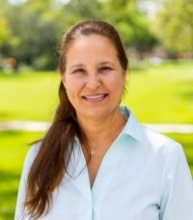CEE Seminar (ZOOM): Lessons Learned from SARS-CoV-2 Measurements in Wastewater

Professor of Environmental Engineering and Associate Dean for Research
Department of Civil, Architectural, and Environmental Engineering
University of Miami
Abstract: Standardized protocols for wastewater-based surveillance (WBS) for the RNA of SARS-CoV-2, the virus responsible for the current COVID-19 pandemic, are being developed and refined worldwide for early detection of disease outbreaks. We report here on lessons learned from establishing a WBS program for SARS-CoV-2 integrated with a human surveillance program for COVID-19. Results focus on the development of a new innovative qPCR technology for rapid detection of SARS-CoV-2, and on the results of a predictive model capable of forecasting COVID-19 cases within a sewershed with a four-day forewarning. Overall results show that coupling simpler and faster detection technology with more frequent sampling has the potential to improve the predictive potential of using WBS of SARS-CoV-2 for early detection of the onset of COVID-19.
Bio: Solo-Gabriele is a professor in the Department of Civil, Architectural, and Environmental Engineering at the University of Miami. She also serves as the associate dean for research in the College of Engineering. Solo-Gabriele’s research has focused on evaluating the relationship between the environment and human health. Her research has spanned diverse areas including evaluating the human health impacts of metals/pesticides in the environment and evaluating human health impacts of microbial contaminants in coastal zones. Solo-Gabriele’s research in microbial contaminants focuses on evaluating the water – sand interface, evaluating microbial contaminants in that area and the conditions under which microbes are released from this zone. Most recently her efforts have focused on evaluating viruses in wastewater for the purpose of evaluating illness among human populations.
Share
Upcoming Events
-
MSE 298 Seminar: Quasi-1D/2D Charge-Density-Wave Materials - From Exotic Physics to Application Prospects
-
EECS Seminar: Steering Diffusion Models for Generative AI, From Multimodal Priors to Test-Time Scaling
-
MAE 298 SEMINAR: Hypersonic Viscous Aerothermochemistry - External Aerothermodynamics and Scramjet Fuel-Air Mixing
-
CBE 298 Seminar: Finding Catalysts of Gut Reactions - The Gut Microbiota in Disease Onset and Treatment
-
CEE Seminar: Confirming a Critical Foundation of Global Warming - Direct Observational Evidence from Space of the Impact of CO2 Growth on Infrared Spectra
